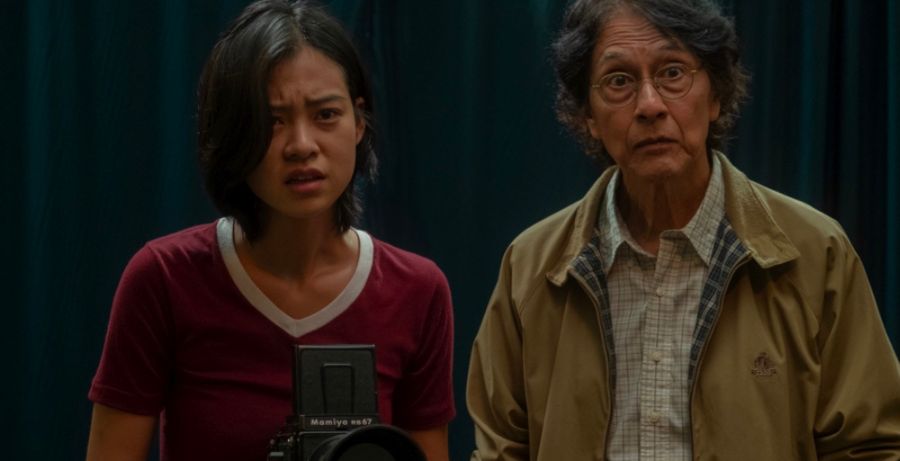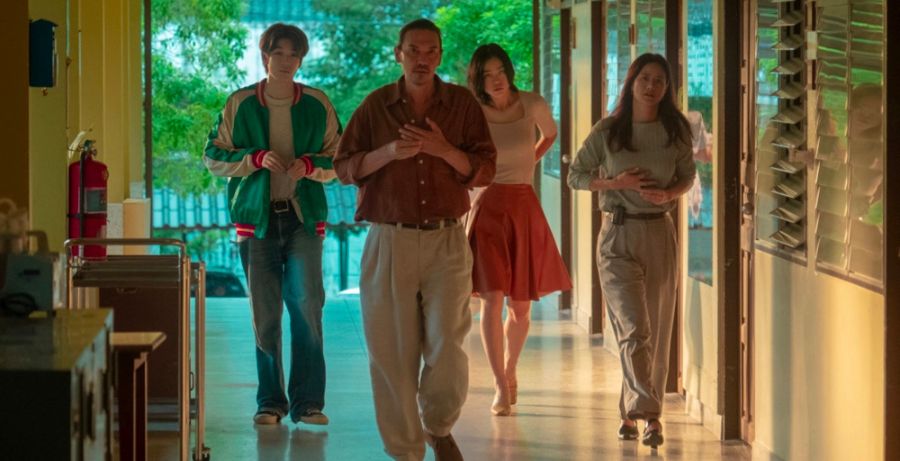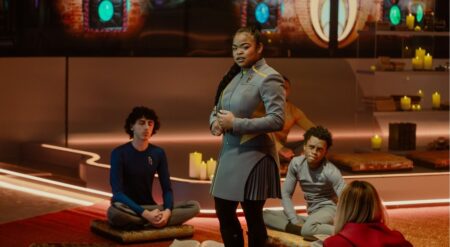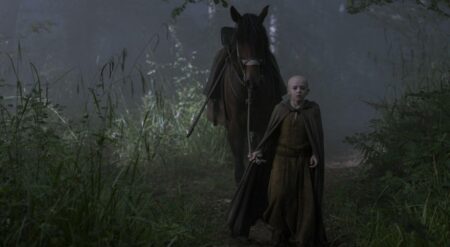It’s the closing days of the 20th century, and Pond (Nopachai Chaiyanam) is going home to see his parents for the first time in over a decade. There’s only one problem: They expect him to arrive with the wife and two children he no longer lives with. To avoid appearing like a failure in front of his folks, Pond hires his ex-girlfriend, Lily (Namfon Kullanat Preeyawat), along with strangers Bung (Wipawee Patnasiri) and Keg (Kritsanapoom Pibulsonggram) to play the role of his family for a few days. But when the lives of the actors begin falling apart, the fiction they’ve crafted begins looking better than reality in Analog Squad.
A lie isn’t bad if it makes the person happy. This early line uttered by Keg sets up the core moral conundrum that Analog Squad explores over its eight episodes. While initially the biggest lie is the one told to Pond’s parents, more and more are discovered as the series explores the personal lives of Bung, Lily, and Keg. Bung discovers her father has been lying to her all her life. It turns out Keg has been lying to his mother his whole life. And Lily is keeping a secret from everyone. All these plot lines mesh together to work far better than they ever could individually. Bung hates her dad for the lie he’s been telling her, but at the same time, she just lied to Pond’s parents so they could have a happier reunion with their son. Whether or not lies are ever justified, or told for the benefit of another (as opposed to simply helping the teller out of an unpleasant circumstance) is examined thoroughly throughout the story.
As their personal storms brew, Lily, Keg, and Bung find themselves taking shelter in the comfort and warmth of Pond’s parents, despite the growing sense of guilt as they perpetuate the lie about the family. As the individuals become more and more connected, Analog Squad begins to question what truly makes a family. While the series never tries to fully answer the question, it crafts some interesting looks at the family that stands at the center of the story. Pond’s parents come to connect with their not-real family, naturally raising questions about the importance of things like blood relations, especially given what some of the real family does to each other throughout the series.

The biggest problem that Analog Squad suffers is trying to do a bit too much. With every major character having their own arc, including extensive flashbacks to explain how they got to where they are, some plots suffer. The fact that Pond, nominally the series’ most central figure, is absent for several episodes while the other characters get established feels less like a choice born out of need rather than creative direction. The show doesn’t have time to do anything with him, so it shuffles him off for a while with sometimes awkward results.
Another smaller, but persistent problem with Analog Squad is its fixation with the turn of the millennium. Every episode ends with a screen informing the viewer how many days until the end of the century. This build-up gives the impression that there will be some grand significance to the big day from a narrative standpoint, but it never happens. The New Year does make an appearance, but nothing occurs during it that couldn’t have happened during New Year 1998, or any other holiday that features happy celebrations for that matter. It is a bizarre choice that ultimately does nothing but distract and confuse the viewer, if only in a minor way.
While some of the plots feel a little thin, the conclusions are almost universally stellar. Several times I thought Analog Squad was going to settle for a cheap, played-out conclusion, only to have it twist at the last second, delivering something far more fulfilling. Of the half-dozen plot lines that come to make up the series, only Bung and her dad end up feeling completely lacking.
While the narrative has its ups and downs, the acting is an across-the-board strength for the show. This is particularly true when the story is reveling in the joys that come from the understanding and warmth of family connections. While there are plenty of hard moments streaked with tears here, the show never fails to highlight the boundless highs of having people in your life that you care about and who return that care to you. The final reveals of the series deliver warmth and heart in ways that are both satisfying and surprising.
While the narrative has some rough patches, the Analog Squad comes together nicely thanks to its wonderful acting, heartfelt moments, and excellently executed ending. A wonderful ride for anyone who loves a great found family tale.
Analog Squad is streaming now on Netflix.
Analog Squad
-
Rating - 8/108/10
TL;DR
While the narrative has some rough patches, the Analog Squad comes together nicely thanks to its wonderful acting, heartfelt moments, and excellently executed ending. A wonderful ride for anyone who loves a great found family tale.







